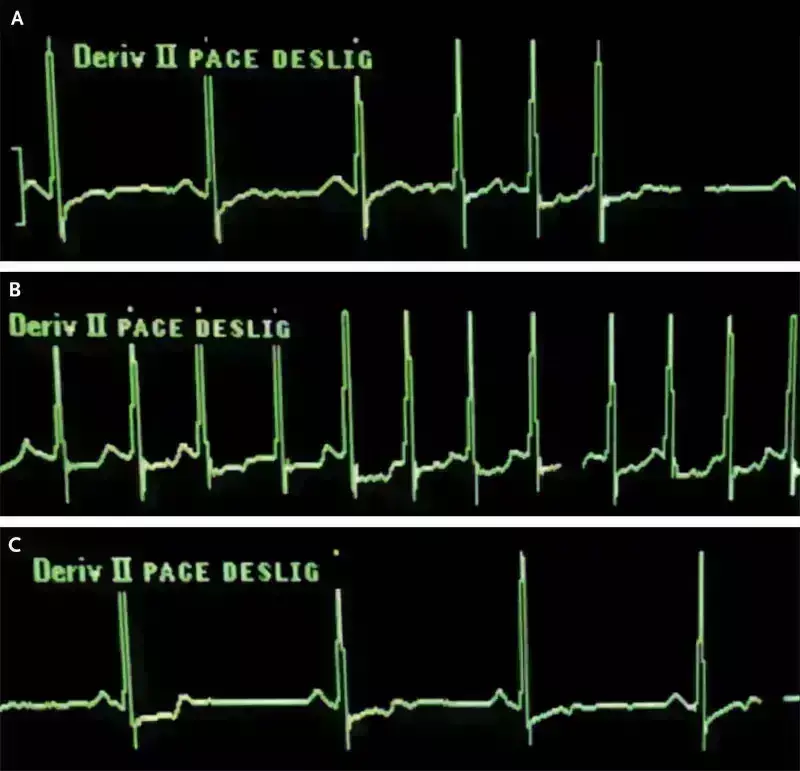- Home
- Medical news & Guidelines
- Anesthesiology
- Cardiology and CTVS
- Critical Care
- Dentistry
- Dermatology
- Diabetes and Endocrinology
- ENT
- Gastroenterology
- Medicine
- Nephrology
- Neurology
- Obstretics-Gynaecology
- Oncology
- Ophthalmology
- Orthopaedics
- Pediatrics-Neonatology
- Psychiatry
- Pulmonology
- Radiology
- Surgery
- Urology
- Laboratory Medicine
- Diet
- Nursing
- Paramedical
- Physiotherapy
- Health news
- Fact Check
- Bone Health Fact Check
- Brain Health Fact Check
- Cancer Related Fact Check
- Child Care Fact Check
- Dental and oral health fact check
- Diabetes and metabolic health fact check
- Diet and Nutrition Fact Check
- Eye and ENT Care Fact Check
- Fitness fact check
- Gut health fact check
- Heart health fact check
- Kidney health fact check
- Medical education fact check
- Men's health fact check
- Respiratory fact check
- Skin and hair care fact check
- Vaccine and Immunization fact check
- Women's health fact check
- AYUSH
- State News
- Andaman and Nicobar Islands
- Andhra Pradesh
- Arunachal Pradesh
- Assam
- Bihar
- Chandigarh
- Chattisgarh
- Dadra and Nagar Haveli
- Daman and Diu
- Delhi
- Goa
- Gujarat
- Haryana
- Himachal Pradesh
- Jammu & Kashmir
- Jharkhand
- Karnataka
- Kerala
- Ladakh
- Lakshadweep
- Madhya Pradesh
- Maharashtra
- Manipur
- Meghalaya
- Mizoram
- Nagaland
- Odisha
- Puducherry
- Punjab
- Rajasthan
- Sikkim
- Tamil Nadu
- Telangana
- Tripura
- Uttar Pradesh
- Uttrakhand
- West Bengal
- Medical Education
- Industry
Speech Induced Tachycardia- Rare case reported in NEJM

Courtesy by André Zimerman and Andre d’Avila, Speech-Induced Atrial Tachycardia, NEJM
Vocalization-related atrial tachyarrythmias are extremely rare. Atrial tachycardias (AT) triggered by pharyngeal stimulation, such as swallowing or speech, appears to be originated from the superior vena cava or right superior pulmonary vein (PV). There are only a few reports have been reported on speech induced tachycardia. Recently, André Zimerman, M.D., and Andre d'Avila, M.D., PhD presented a case on speech induced tachycardia. The report has been published in The NEW ENGLAND JOURNAL of MEDICINE on May 29, 2021.
While the majority of the swallow or speech-induced AT cases originated from the superior vena cava or right superior PV , some arise from the left superior PV and the right atrium. The physicians explained about a case of 58 years old man admitted to the emergency department with a 1-month history of intermittent dizziness and palpitations that occurred when he spoke. They conducted echocardiogram and computed tomography.
Details on observation:
Upon clinical examination with continuous electrocardiographic monitoring, the clinicians found premature atrial beats when he was speaking isolated words (Panel A).
They further noted that a sustained atrial tachycardia up to 167 beats per minute when he was speaking full sentences (panel B).
Later, the arrythmias reduced when he stopped talking.
The clinicians reported that the arrythmias were reproducibly triggered by any spoken syllable but not by soundless mouth movement, deep breathing, or an inspiratory breath-hold.
Upon transthoracic echocardiogram, they found no abnormal structural findings of the heart.
They also found no significant findings upon computed tomography of the chest.
The patient's symptoms improved subsequently with oral metoprolol treatment, which was continued for 3 months.
The clinicians observed no recurrence of symptoms and performed no catheter ablation.
They noted that the patient remained symptom-free after 3 years of follow up.
While explaining the mechanism, the authors wrote, "Speech-induced atrial tachycardia may represent transient aberrant vagal stimulation from the recurrent laryngeal nerve to the atrial autonomic ganglia, resulting in abnormal automaticity or triggered activity. "
For further information:
Medical Dialogues Bureau consists of a team of passionate medical/scientific writers, led by doctors and healthcare researchers. Our team efforts to bring you updated and timely news about the important happenings of the medical and healthcare sector. Our editorial team can be reached at editorial@medicaldialogues.in.
Dr Kamal Kant Kohli-MBBS, DTCD- a chest specialist with more than 30 years of practice and a flair for writing clinical articles, Dr Kamal Kant Kohli joined Medical Dialogues as a Chief Editor of Medical News. Besides writing articles, as an editor, he proofreads and verifies all the medical content published on Medical Dialogues including those coming from journals, studies,medical conferences,guidelines etc. Email: drkohli@medicaldialogues.in. Contact no. 011-43720751


